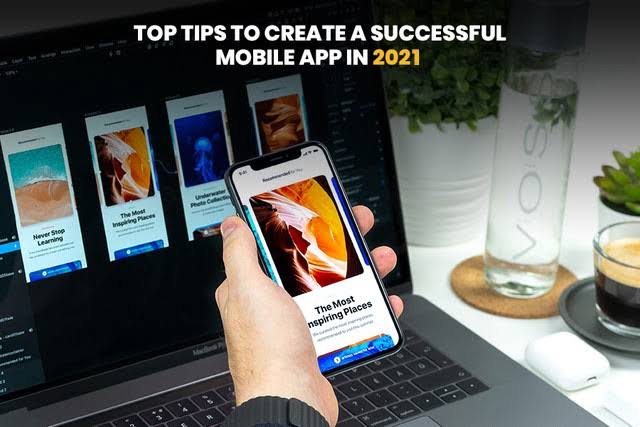In a modern business environment, it is very important to have a mobile app, even if you have a great business website. According to the statistics, 49% of people open an app 11+ times each day. GBKSOFT, an Android app development company has shared useful exclusive tips and techniques allowing to create a mobile app. In this article, you will uncover secrets allowing you to build apps with great performance and offer unique user experiences.
Primarily, let us define the characteristics of the successful mobile app:
From the target user perspective:
- Primary, your app design should be user-oriented. Make sure, it solves the main problems of your target user offering unique experiences. Your decisions should be driven by the user-centric approach.
- The mobile app should have a stable workflow.
- Sufficient level of privacy and data protection.
From the point of view of the business side, a mobile app should:
- High user retention rates.
- Multilayered authentication and regular data backups that protect from data breaches.
- The winning design and unique set of features
- In all your decisions be user-oriented, not competitor-oriented.
Apart from that mobile app development usually involves creating stable mobile applications, various API integration, implementation of other backend services, and testing.
Mobile applications and different platforms
On the modern smartphone market exist two dominant platforms iOS and Android. Although there are some similarities between them, building apps on these platforms presupposes the usage of various tool sets (SDKs). Apple has its own devices while Android apps are widely available.
Native vs Hybrid – what should you choose?
Exist four major mobile app development approaches:
- The development of web-based apps
- Native application development
- Cross-platform app development
- The development of hybrid apps
While deciding on the app development approach, it is necessary to take into account the desired user experience, available budget, tech resources, native features required by the app as well as resources available to maintain the app.
With all previously mentioned points in mind, you can move to the next decision -what type of app to develop – native or hybrid?
Native app development means building a mobile application that operates on a particular platform – iOS or Android. The development of native apps is extremely beneficial for business, since such apps:
- Allow implementation of rich functionality
- High-performance thanks to the clear code
- Allows integration of various API
- Higher level of security
Native applications are written especially for a specific operating platform with the use of a special set of tools. These tools speed up the development process. Exist also special guidelines and a set of libraries designed for specific iOS and Android mobile apps. Native apps also have more user-friendly designs and are easily navigable for users.
Hybrid applications have a single code-base and their performance is much lower in comparison to native apps. Hybrid applications are very dependent on the choice of libraries and frameworks, they have fewer functions and do not allow full design optimization.
The choice of the type of mobile app should be also made based on your budget limits, deadlines, and main business goals. However, if you want to monetize your app and launch advertising campaigns, native app development allows higher revenue opportunities. Mobile app development is costly, however, it is a type of investment that pays off in the long run.
Exclusive tips and techniques to build a mobile app
Here is the exclusive list of features that will make your app successful:
- Identify your audience. Examine the statistics and current market trends, launch the MVP and gather the user feedback to decide on the best functionality of the mobile app that will satisfy the user’s needs.
- Blend users’ needs, tech expertise, and business objectives in a single app.
- Define your business models for future successful app monetization.
- It is important to maintain detailed documentation. It is necessary to document every single feature. It will allow switching to another tech partner easily and onboard the newly hired developers quicker.
- Settle on the specific set of features, primary for MVP development, then based on it, the features of your future app.
- Choose the right tech stacks. Familiarize oneself with HTML, CSS, and JavaScript and Swift.
- Select the development environment that allows to easily and quickly integrate, use and consume the most commonly required capabilities into the future app.
- Select a reliable and experienced tech partner for mobile app development based on customer reviews and a number of successful cases.
- Ensure that your tech partner shares the same value with you and is aware of your project idea and business philosophy.
- Offer the highest level of safety and privacy.
- Provide third-party integrations. It will raise loyalty to your app since it will provide familiar user experiences and expand the functionality of your app.
- Make regular updates and fix the inefficiencies in the shortest terms.
- Work on user retention rates. Make sure you do everything to keep your users satisfied.
Building a successful mobile app isn’t only the opportunity to establish your digital presence and make your business mobile present. You do not need to be too technology-focused. There is a more important aspect – be user-centric!
The other aspect, dominating over the technical issues is the organization of the mobile app development process. If all processes are perfectly tuned and the development team has advanced skills and expertise, your app will definitely be successful.


